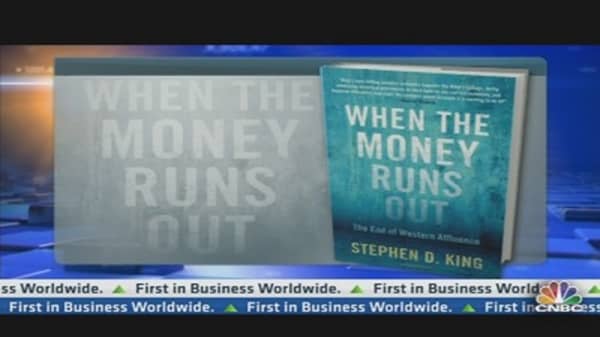As Western economies come to terms with a sustained period of low growth and an inability to afford its social commitments, nationalist and isolationist movements will increasingly come to the forefront, HSBC's chief economist Stephen King told CNBC on Monday.
King argued that the benefit culture of Western countries is only sustainable through continued economic expansion - something he said was highly unlikely.
"We've been living beyond our means," King said. "From benefits through to financial claims - including those on pieces of paper, like bonds - society will have to reduce these claims and go back on their promises."
For King, with growth far weaker than that experienced in the 20th century, people will have to be stripped of entitlements - such as pensions, healthcare benefits and social security - which will create social upheaval.
King's argument is outlined in his latest book, "When the Money Runs Out". He said that while the stimulus reaction of most countries in response to the 2008 financial crisis ensured a major depression was avoided, there has been naive belief from many that a recovery would be quick.




